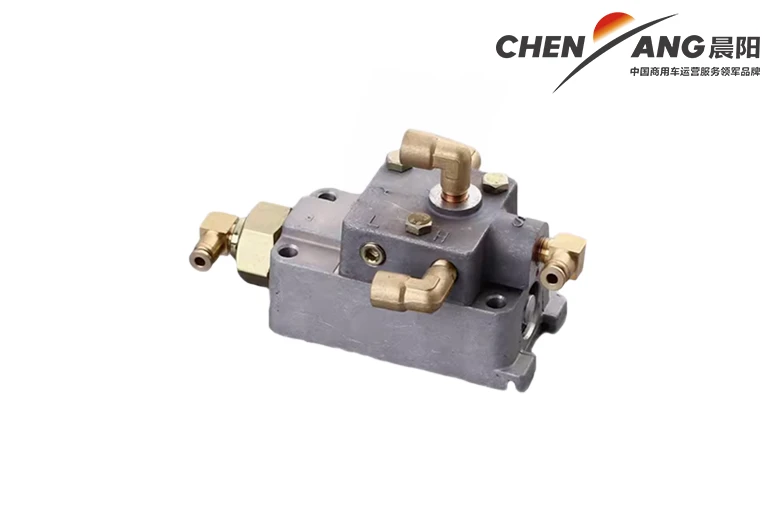carburetor engine
Understanding Carburetor Engines A Classic Approach to Combustion
Carburetor engines, a staple of automotive history, represent a classic method of delivering fuel to an internal combustion engine. Their design dates back to the early days of motoring, and despite the wave of technological advancements in fuel injection systems, carburetors continue to hold a place of importance in certain applications, particularly in vintage vehicles, motorcycles, small engines, and performance tuning.
The Functioning of a Carburetor
At its core, a carburetor's primary function is to mix air and fuel in the correct ratio to create a combustible mixture that can power an engine. The carburetor operates on the principles of aerodynamics and fluid dynamics. When air is drawn into the engine's intake, it flows through the carburetor, where it passes a narrow venturi. This constricted passageway increases the airspeed, causing a drop in pressure due to the Venturi effect. The resulting low pressure draws fuel from a reservoir through a jet and into the airflow, creating an air-fuel mixture that is ideal for combustion.
The beauty of the carburetor lies in its simplicity and mechanical ingenuity. There are several key components, such as the float chamber, jets, and throttle plate, all working harmoniously to regulate the fuel-air mixture. The float chamber ensures a consistent supply of fuel, while the jets control the amount of fuel injected into the airflow. The throttle plate, operated by the accelerator pedal, controls the engine's power output by regulating the airflow and the resultant mixture.
Advantages of Carburetor Engines
1. Simplicity Carburetors are generally simpler in design compared to fuel injection systems. This simplicity makes them easier to repair and maintain, appealing to mechanics and DIY enthusiasts.
2. Cost-Effective Due to their straightforward design and lower manufacturing costs, carburetors are often less expensive than modern fuel injection systems. This cost-saving feature makes them attractive for use in budget-friendly vehicles and machinery.
carburetor engine

3. Tuning Potential Performance enthusiasts value carburetors for their tunability. Changes can be made to jets and air-fuel ratios to optimize performance, allowing for a tailored driving experience.
4. Reliable Cold Starts Carburetors often provide reliable cold engine starts, especially in older vehicles. This is due to the capability of the carburetor to enrich the fuel mixture to facilitate easier ignition in colder conditions.
Disadvantages and Challenges
Despite their advantages, carburetor engines do have drawbacks. They are less efficient than their fuel-injected counterparts, particularly in terms of fuel economy. Modern fuel injection systems can adjust the air-fuel mixture more precisely based on real-time conditions, such as engine temperature and atmospheric pressure, leading to better efficiency and lower emissions.
Additionally, carburetors can struggle with performance at altitude where air density decreases, making it more difficult to achieve the optimal air-fuel mixture. Furthermore, they are sensitive to dirt and require regular cleaning to maintain optimal functionality, which can be seen as inconvenient compared to the more self-regulating nature of fuel injection systems.
The Future of Carburetor Engines
While carburetor engines are becoming less common in new vehicles, they are cherished by enthusiasts and collectors who appreciate vintage cars and the nostalgia associated with them. Carburetors are also prevalent in small equipment like lawn mowers, chainsaws, and generators. As the push for cleaner alternatives to fossil fuels continues, carburetor designs may undergo innovations focused on emission reduction while maintaining their characteristic simplicity.
In conclusion, carburetor engines embody a rich history of automotive engineering. Their simple yet effective design made them indispensable in the early automotive landscape and continues to ensure their relevance in certain niche markets today. As we look to the future, the lessons learned from carburetor technology may very well inform the next generation of engine design, blending the old with the new in our ever-evolving automotive world.
-
SINOTRUK HOWO 84 Electric Dump Truck for Eco-Friendly Heavy HaulingNewsJul.26,2025
-
The Fast 16-Gear Manual Transmission Assembly for Heavy TrucksNewsJul.25,2025
-
Mercedes Benz Actros 1848 42 Tractor Truck for Sale - Reliable PerformanceNewsJul.24,2025
-
High-Quality Water Pump Assembly for Sinotruk Trucks – Durable & ReliableNewsJul.23,2025
-
Premium Truck Engine Antifreeze Coolant Fluid for Heavy Duty VehiclesNewsJul.22,2025
-
FOTON View G7 Mini Bus: Affordable & Spacious TransportNewsJul.22,2025
Popular products

























